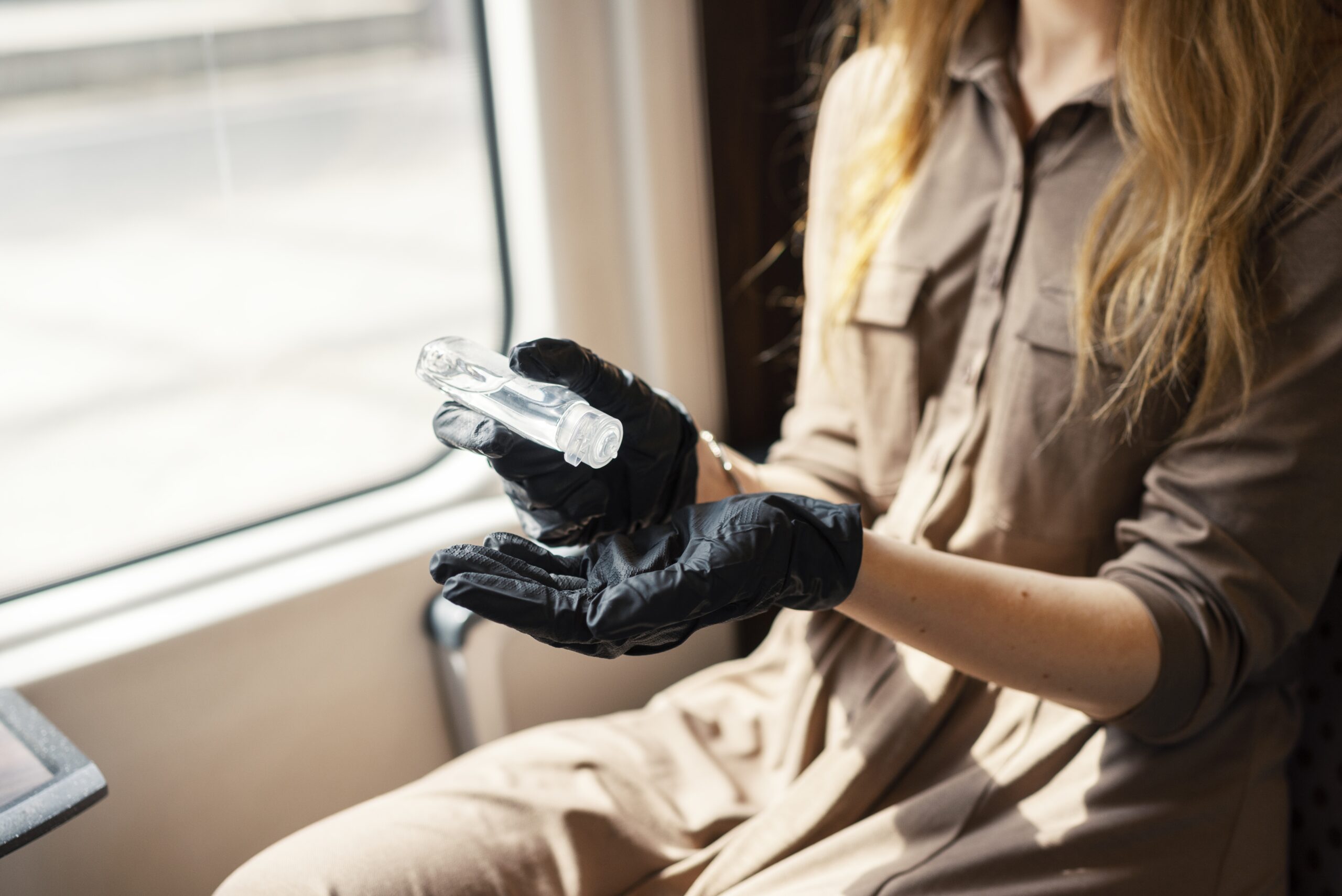You may feel anxious at the thought of stopping prescription pills on your own. At a prescription pill detox center, you’ll find the comprehensive care and support necessary to manage withdrawal safely and comfortably. With medical supervision, tailored treatment programs, and a supportive environment, you can focus on stabilizing your mind and body as you begin your recovery journey.
In the following sections, you’ll discover what to expect from admission through transition to ongoing care. You’ll learn how staff will monitor your progress, manage withdrawal symptoms, and guide you toward lasting recovery. Whether you’re seeking help for yourself or researching options for a loved one, this guide will offer clarity and reassurance every step of the way.
Understanding prescription pill detox
What is a detox center
A prescription pill detox center provides a structured setting where medical professionals oversee your withdrawal from medications such as opioids, benzodiazepines, stimulants, or other controlled substances. Unlike quitting “cold turkey” at home, a detox facility offers:
- 24/7 medical monitoring
- Medication-assisted treatments to ease symptoms
- Personalized care plans based on your health history
- Emotional and psychological support
As a result, you reduce risks like severe dehydration, seizures, or dangerous blood pressure changes. You’ll also benefit from the supportive environment designed for people facing similar challenges.
Who may need detox
Detox is often the first step for anyone experiencing physical dependence on prescription drugs. You might consider a center if you’ve noticed:
- Increased tolerance, requiring higher doses to get the same effect
- Withdrawal symptoms when you miss a dose
- Unsuccessful attempts to quit on your own
- Health complications or co-occurring mental health issues
According to the National Institute on Drug Abuse, treatment admissions for prescription drug use disorders rose significantly over two decades before leveling off in 2020 [1]. Seeking help at the right time can prevent crises and set the stage for long-term recovery.
Preparing for detox
Pre-admission assessment
Before you arrive, the center’s team will review your medical history, current medications, and any mental health concerns. This assessment may include:
- Physical exam and vital signs
- Blood tests or other lab work
- Psychological evaluation
- Review of your prescription history
These steps ensure your detox plan is safe and tailored to your unique needs. You’ll also discuss any co-occurring conditions, such as depression or anxiety, so staff can integrate supportive therapies.
Essential items to pack
When packing for your stay, bring:
- Comfortable clothing and slippers
- Toiletries (toothbrush, shampoo, soap)
- Prescription medications in original containers
- List of emergency contacts
- Reading materials or journals
Leave valuables, electronics with internet access, and illicit substances at home. Most centers provide bedding, meals, and recreational activities, so focus on items that support your comfort and reflection.
Navigating medical supervision
Initial medical evaluation
On arrival, a nurse or physician will conduct a thorough evaluation to establish your baseline and identify any immediate concerns. You can expect:
- Measurement of blood pressure, heart rate, temperature
- Assessment of withdrawal severity using standardized scales
- Screening for co-occurring mental health disorders
- Discussion of your personal goals and past treatment experiences
This initial evaluation informs the level of care you’ll receive and helps clinicians anticipate complications early.
Medication-assisted treatments
Medications play a central role in many detox programs, especially for opioid or benzodiazepine dependence. Your doctor may offer:
| Medication | Class | Purpose |
|---|---|---|
| Methadone | Full opioid agonist | Reduces cravings and withdrawal severity |
| Buprenorphine | Partial opioid agonist | Stabilizes brain chemistry with lower overdose risk |
| Naltrexone | Opioid antagonist | Blocks effects of opioids once detox is complete |
| Clonidine | Alpha-2 agonist | Eases anxiety, sweating, and high blood pressure |
These treatments, known collectively as medication-assisted treatment (MAT), combine with counseling for best outcomes. A combination of medication and behavioral therapies represents best practice according to SAMHSA [2].
Get Help. Get Better. Get Your Life Back.
Searching for Accredited Drug & Alcohol Rehab Centers Near You? Or Mental Health Support?
Even if you have failed previously, relapsed, or are in a difficult crisis, we stand ready to support you. Our trusted behavioral health specialists will not give up on you. Call us when you feel ready or want someone to speak to about therapy alternatives to change your life. Even if we cannot assist you, we will lead you wherever you can get support. There is no obligation. Call our hotline today.
FREE Addiction Hotline – Call 24/7Managing withdrawal symptoms
Common withdrawal symptoms
Withdrawal can vary by drug class, dose, and duration. Typical symptoms include:
| Symptom | Onset | Duration |
|---|---|---|
| Sweating | 6–12 hours | 5–7 days |
| Muscle aches | 6–12 hours | 3–5 days |
| Anxiety | 6–24 hours | 7–10 days |
| Nausea and vomiting | 12–24 hours | 2–5 days |
| Insomnia | 24–72 hours | 7–14 days |
| Seizures (rare) | 12–48 hours | Variable |
Your care team will monitor vital signs and adjust medications as needed. If you’ve withdrawn from a benzodiazepine, gradual tapering under supervision helps avoid severe complications [3].
Comfort and safety measures
To support your comfort:
- You’ll have frequent check-ins with nursing staff.
- Non-opioid medications can relieve pain, nausea, and anxiety.
- Hydration and electrolyte replacement prevent complications.
- Restorative rest periods help your body heal.
Staff will also teach you breathing exercises and relaxation techniques to manage discomfort and anxiety.
Engaging in therapy and support
Individual counseling sessions
Early in detox, you’ll meet one-on-one with a therapist or counselor trained in addiction treatment. Topics may include:
- Exploring triggers and coping strategies
- Processing emotions related to substance use
- Setting short- and long-term recovery goals
These sessions lay the groundwork for your personalized treatment plan and help you develop skills to stay sober.
Group therapy benefits
Group therapy offers peer support and shared learning. In a men’s-only or coed setting, you’ll find:
- Mutual encouragement from others facing similar challenges
- Feedback on coping strategies and relapse prevention
- Opportunities to build trust and accountability
Shared experiences foster camaraderie and remind you that you’re not alone in this journey.
Peer support groups
Many centers integrate 12-step meetings or other mutual help groups into the daily schedule. These meetings can:
- Provide ongoing encouragement beyond your stay
- Connect you with sponsors or recovery partners
- Reinforce the commitment to sobriety
Even if you’re new to recovery meetings, attending a few can help you find a supportive community.
Integrating holistic therapies
Mind-body exercises
Alongside counseling, holistic methods help restore balance. Common offerings include:
- Yoga or gentle stretching to reduce stress
- Meditation or mindfulness sessions for emotional regulation
- Art or music therapy to express feelings nonverbally
These practices complement medical care, fostering a sense of control and well-being.
Nutritional and wellness support
Proper nutrition and self-care are critical during detox. You’ll receive:
- Balanced meals rich in protein, complex carbohydrates, and healthy fats
- Guidance on vitamin and mineral supplementation
- Education on sleep hygiene and stress management
By rebuilding your physical health, you strengthen your foundation for ongoing recovery.

Get Your Life Back
Find Hope & Recovery. Get Safe Comfortable Detox, Addiction Rehab & Mental Health Dual Diagnosis High-Quality Care at the We Level Up Treatment Centers Network.
Hotline (877) 378-4154Transitioning to ongoing care
Creating aftercare plan
As detox concludes, you and your care team will develop a personalized aftercare strategy. This plan may include:
- Referrals to a prescription drug rehab program for residential or outpatient treatment
- Medication management appointments with certified clinicians
- Continued individual or group counseling
If opioids like oxycodone were involved, you might explore a specialized oxycodone rehab center or an adderall rehab program for stimulant dependence.
Relapse prevention strategies
Preventing relapse involves:
- Identifying high-risk situations and triggers
- Developing coping tools such as breathing exercises or support calls
- Attending ongoing support groups or therapy sessions
Relapse does not signal failure; rather it highlights the chronic nature of addiction and the need to modify your treatment approach [4].
Answering common questions
How long does detox last
Most prescription pill detox stays range from 5 to 14 days, depending on factors such as:
- Type of medication you’ve been using
- Duration and severity of your use
- Medical complications or co-occurring disorders
Your detox center will recommend a length of stay that maximizes safety and comfort.
Will I experience withdrawal alone
No, you won’t face withdrawal in isolation. Staff provide round-the-clock monitoring, medication adjustments, and emotional support. Nurses and counselors check on you frequently to ensure your comfort and safety.
What to do after detox
Once you complete detox, stay engaged with your recovery plan:
- Enroll in ongoing therapy or an outpatient program.
- Attend peer support meetings regularly.
- Follow up on medication management appointments.
- Lean on your support network and recovery community.
By maintaining these connections, you’ll reinforce the skills and resilience you built during detox.
You’ve taken a courageous first step by exploring what to expect at a prescription pill detox center. With medical supervision, individualized plans, and a supportive environment, you can navigate withdrawal safely and lay the groundwork for lasting recovery. When you’re ready to move forward, reach out to treatment specialists who can guide you toward the next phase of your journey.
References
- (National Institute on Drug Abuse)
- (SAMHSA)
- (National Institute on Drug Abuse)
- (National Institute on Drug Abuse)
Experience Transformative Recovery at the We Level Up Treatment Center.
See our authentic success stories. Get inspired. Get the help you deserve.



Start a New Life
Begin with a free call to an addiction & behavioral health treatment advisor. Learn more about our dual-diagnosis programs. The We Level Up treatment center network delivers various recovery programs at each treatment facility. Call to learn more.
- Personalized Care
- Caring Accountable Staff
- Comfortable Amenities
- Licensed & Accredited
- Renowned w/ 5-Star Reviews






